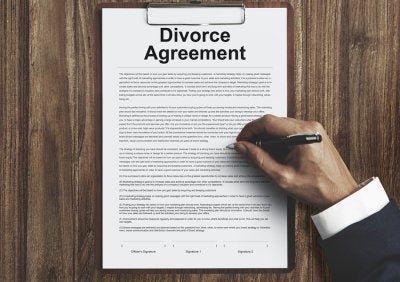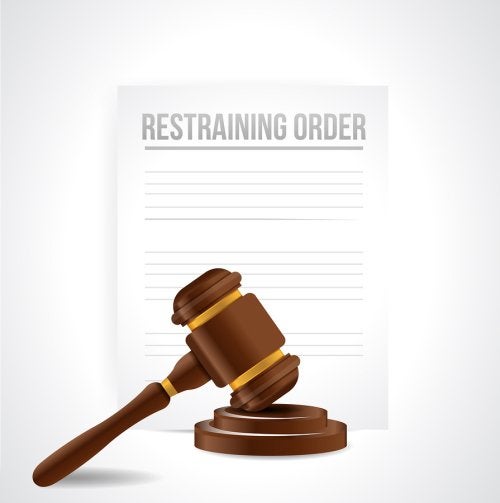-
Medication Disputes and Co-Parenting: A Look at Common Problems and Solutions
Even when parents are both committed to co-parenting cooperatively for the benefit of their children, disputes are inevitable. One common area of conflict involves medications and other medical decisions. Although some types of child custody put the power to make these decisions firmly in the hands of one parent, in other cases, parents each have the right to weigh in, and disagreements may arise. Your family attorney in Owings Mills can help you navigate these touchy issues when they occur. Here is a look at some of the common problems that happen regarding medication disputes in co-parenting agreements—and how you can overcome them.
 Common Medication Disagreements
Common Medication Disagreements In most cases, parents do not disagree about giving children medicine for acute illnesses, such as an antibiotic for bronchitis. Instead, parents may find they are not on the same page when it comes to managing chronic conditions, particularly ADHD or ADD. One parent may believe that the child needs to be on medication for attention deficit and/or hyperactivity, while the other parent doesn’t believe in giving children these kinds of medications. Other common areas of dispute are antidepressants or other medications for psychiatric conditions and vaccinations.
Solutions for Medication Disputes
Solving a medication dispute may be as easy as reviewing your child custody agreement. If one party has sole legal custody, then he or she has the exclusive right to make medical decisions for the children. If you have joint legal custody, then both parents must come to agreement on issues regarding medical decisions. If you can’t come to agreement, consult your family law attorney. He or she may recommend mediation, or in some cases, you may wish to return to court for a review of your custody agreement. Even if you haven’t experienced a dispute about medications or other aspects of medical care, it can be helpful to ask your family lawyer to include stipulations about how medical care will be addressed in your child custody agreement, so you can reduce the risk of future complications.
““
-
Common Questions About Property Division in Maryland
Divorce typically has substantial effects on personal finances. Not only will the spouses have to adjust to living on a single income, but they won’t have access to the same financial assets as before. The division of property is subject to Maryland divorce laws and factors that are unique to each individual case. For accurate legal guidance, it’s advisable to consult a divorce attorney serving Owings Mills .

What is marital property?
It’s a common misconception that marital property refers solely to property that is jointly owned by both spouses. In fact, marital property includes almost any property that was acquired during the marriage. This applies regardless of which spouse purchased the property or earned the wages. Marital property includes vehicles, furniture, artwork, real estate, stocks and bonds, bank accounts, and retirement accounts. There are a few exceptions to this rule. If one spouse receives an inheritance or property as a gift, it’s considered non-marital property. Property is also excluded if there is a valid, legal agreement that excludes it.
Is marital property divided 50/50?
Another common myth about property division in a divorce is that each spouse receives half of the marital assets. Maryland is an equitable distribution state, rather than a community property state. In an equitable distribution state, the court issues rulings on property division based on what would be fair for both parties. A fair result isn’t necessarily an equal distribution.
Can property be both marital and non-marital?
In certain cases, it’s possible for property to be marital and non-marital. One person might purchase a condo before the marriage, which would make the condo non-marital property. However, if marital assets are then used to pay the mortgage, the condo becomes partially marital and non-marital property.
Does the length of the marriage factor into property division?
The length of the marriage does not necessarily have a significant impact on property division, unless the marriage was short-lived. Short-term marriages do not generally give the spouses enough time to accrue significant marital property. In these situations, the goal of the court is generally to restore both individuals to their pre-marital financial situations. The spouses can expect to keep the property they each brought to the marriage, and fairly divide any assets acquired during the marriage.
-
A Quick Look at Monitored Exchanges
Depending on the type of child custody agreement you have, your divorce lawyer may recommend a monitored exchange when you and your ex-spouse bring your children back and forth to each other for visitation. If you have entered into a custody agreement that includes a stipulation for monitored exchanges or if you want to add a monitored exchange to your existing child custody case in Owings Mills, your divorce lawyer can help you understand what to expect.
Monitored exchanges reduce the risk of conflict between parents when they have to face each other while sharing custody of their children by ensuring another party is present to witness the exchange. They can happen under the guidance of a family member or friend that both parties trust or at a court-appointed facility. Frequently, monitored exchanges are recommended to ensure that children and parents get to maintain their relationships, even when the relationship between the parents has become acrimonious. They allow the parents to focus on their time with their children instead of the stress of confronting an ex at the start and end of each visitation period.

-
Should You Report Alimony on Your Tax Return?
Filing taxes after a divorce can be complex, particularly if alimony payments are involved. Your divorce lawyer in Owning Mills can offer advice about filing your taxes after a divorce. This video addresses a common question that people have about alimony and taxes.
Generally, alimony payments are taxable income for the recipient and deductible expenses for the person paying the alimony. If you are the person paying the alimony, you will need to include the Social Security number of your ex on your taxes so the IRS can determine where those payments are going. If you are unsure about how alimony and other aspects of your divorce may impact your taxes, ask your divorce lawyer for advice or a referral to a tax professional.
-
Types of Protective Orders
A type of restraining order, known as a protective order, is a type of court order that plays an integral role in domestic violence law in Baltimore County . Protective orders are usually, but not exclusively, issued against other family members, household members, or former intimate partners. Family court attorneys can help you obtain an appropriate type of protective order. Your attorney will typically obtain a temporary order first, prior to being able to request a permanent order of protection. A temporary protective order goes into effect for no longer than six months, although it is typically in place for a much shorter period of time. Despite the name, a permanent protective order is not actually permanent. It goes into effect for a longer period of time; it may last for months or up to a year. However, your attorney may be able to get the protective order renewed or extended if you are still in danger.
Maryland domestic law also classifies these court orders according to whether the petitioner has had a relationship with the harasser or abuser. If so, then it is officially known as a protective order. If not, then your attorney will request a peace order on your behalf.

-
Dealing with the Issue of Credit Card Debt During Divorce
Before you have your family lawyer file the divorce papers, you should take the time to discuss all of your concerns and your goals for the outcome of the case. If you live near Owings Mills, your family attorney will inform you that Maryland is an equitable distribution state . This means that the judge will order a fair or equitable division of property and liabilities such as credit card debt. Equitable distribution does not necessarily mean that your assets and debts will be split 50/50, however. Debts such as credit card debt can be particularly tricky to resolve during or after a divorce.
How Should I Deal With Joint Accounts?
Talk to your family attorney about closing joint accounts before you file for divorce. If this isn’t possible because a balance remains on the credit card, you may be able to have the creditor place a freeze on the account to prevent your spouse from making purchases with it. Depending on your particular situation, you might also consider talking to your spouse about paying off the account together before filing for divorce. If credit card debt remains during the divorce, your divorce decree should specify who is responsible for paying it.
Why Is the Credit Card Company Pursuing Collections Against Me?
 Many people experience problems with creditors long after the divorce is finalized. If your ex-spouse was responsible for paying off a credit card, but your name is attached to the account, the creditor may pursue collection actions against you if your ex-spouse fails to make payments. This is because credit card companies are not required to honor the provisions in a divorce decree. Unfortunately, this also means that the failure of your ex-spouse to make payments could affect your credit score.
Many people experience problems with creditors long after the divorce is finalized. If your ex-spouse was responsible for paying off a credit card, but your name is attached to the account, the creditor may pursue collection actions against you if your ex-spouse fails to make payments. This is because credit card companies are not required to honor the provisions in a divorce decree. Unfortunately, this also means that the failure of your ex-spouse to make payments could affect your credit score.Am I Liable for Debt If My Ex-Spouse Filed for Bankruptcy?
Similarly, if your ex-spouse files for bankruptcy and has his or her credit card debt discharged, your name will remain on the joint account and the credit card company can demand payment from you. Bankruptcy doesn’t necessarily erase the debt, but rather eliminates your ex-spouse’s liability for it. However, bankruptcy will not eliminate your ex-spouse’s liability toward you. If the credit card company holds you liable for the debt, you can in turn file a civil lawsuit against your ex to demand damages.
RECENT POSTS
categories
- Uncategorized
- Divorce
- Infographic
- reviews
- Accidents
- Divorce Law
- Maryland Divorce Law
- Child Custody
- Alimony
- Indefinite Alimony
- Divorce Lawyer
- Annulment
- Kent L. Greenberg
- Matthew J. Rudo
- Child Support
- Credit Card Debt
- Remarriage
- Divorce Papers
- Child support law
- Alimony laws
- divorce process
- Alimony Payments
- Absolute Divorce
- Contested Divorce
- divorce attorney
- family attorney
- family law
- No-Fault Divorce
- Family Care Plan
- financial statement
- Online Divorce
- lawyer
- Uncontested Divorce
- Law Office of Kent L. Greenberg
- P.A.
- Joint Custody
- Senior Divorce
- DIY Divorce
- Car Accident Attorney
- Greenberg
- Personal Injury Law
- Domestic violence
